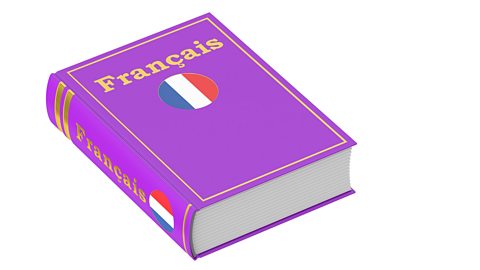In French, some letters are silent, either at the start or at the end of a word. Here are some rules to look out for:
Understanding silent letters in French
The sounds you make when you read French out loud are sometimes different to the ones you’d make in English.
One of the big differences are the silent letters.
Take the word duvet. Even English speakers say this word like French speakers. They don't pronounce the 't' at the end - 'duvay'.
Like le parent - which means - you guessed it - parent.
The 't' at the end of the word is silent.
**'d'** at the end of a word is silent - as in grand,
**'x'** is usually silent at the end of a word - like deux,
's' is very often silent at the end of a word as in trois or souris,
and if 'h' is the first letter of a word - it is always silent.
So: J'habite dans un hôtel à Hawaii - I live in a hotel in Hawaii.
When you see the 't','d','s' or 'x' at the end of the word… or 'h' at the start shhhhhhh!
The silent ‘h’
In French, the letter h is silent. Before most words that start with h, if you need a definite article use l’ rather than le or la.
- L’hippopotame est heureux - The hippo is happy.
- L’hôtel est en Hongrie - The hotel is in Hungary.
- L’homme est très honnête - The man is very honest.
- L’hippopotame est heureux.
- L’hôtel est en Hongrie.
- L’homme est très honnête.
Silent letters at the ends of words
When the following letters are at the very end of a word, they are usually not pronounced:
n, p, s, t, x, z.
- bon - good
- beaucoup - a lot
- les parents - parents
- chat - cat
- gâteaux - cakes
- vous mangez - you (plural, formal) eat
- bon
- beaucoup
- les parents
- chat
- gâteaux
- vous mangez
Liaisons
When a word ends in s, x, t or n and the next word starts with a vowel or an h, the s and x will sound like z, and the t and the n will be pronounced. This is called a ‘liaison’, as the words are linked together.
- Le_s_ enfants aiment jouer au tennis - The children like playing tennis.
- C’est trè_s_ ennuyeux - It’s very boring.
- Ma grand-mère avait deu_x_ enfants - My grandmother had two children.
- Il es_t_ heureux - He is happy.
- Il est allé dans un bo_n_ hôtel en Italie - He went to a good hotel in Italy.
- Les enfants aiment jouer au tennis.
- C’est très ennuyeux.
- Ma grand-mère avait deux enfants.
- Il est heureux.
- Il est allé dans un bon hôtel en Italie.
More on Using French language
Find out more by working through a topic
- count3 of 4

- count4 of 4

- count1 of 4
